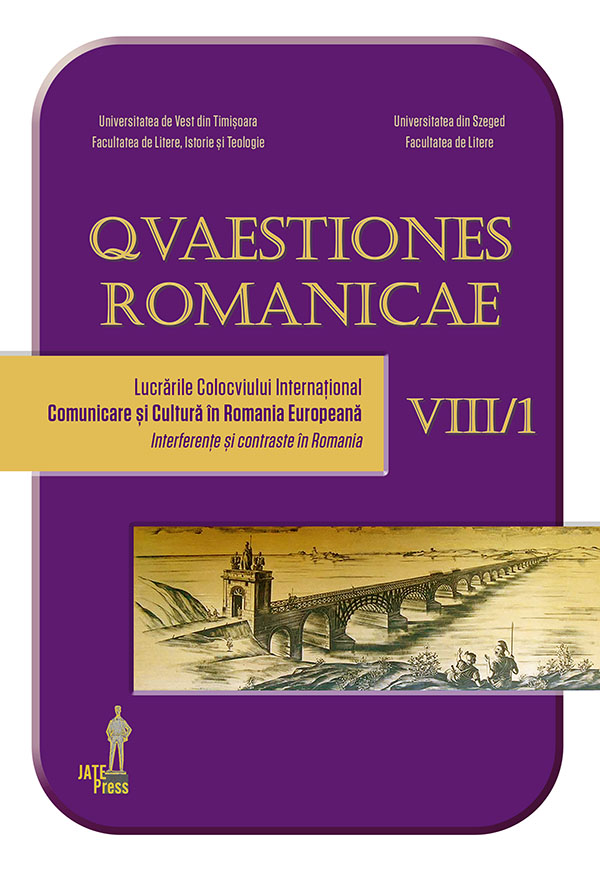Rolul bibliotecilor în tranziția către open access (OA): tendințe europene
Abstract: (The Role of Libraries in the Transition to Open Access (OA): European Trends) Starting from the premise that open science (OS) represents a great opportunity for libraries through the activities it involves, the paper highlights OS implications on the new informational environment. The OS initiatives emphasizing the level of development and implementation reflected in the national OS plans from different European countries are showed. The OS activities and their sustainability are presented as an open access (OA) case study, the results being supported by data from Spain and UK. Although the conclusion is that the OA phenomenon comes with some costs, it is clear that scholarly publications in OA must be adequately supported, promoted and funded. In the second part of the paper we analyze the OA phenomenon in Romania as it is reflected in the bibliometric databases (Web of Science and Scopus) and in Directory of Open Access Journals (DOAJ). Towards the end, the paper tries to establish the role of libraries in the framework of OS, OA, OD (open data) by answering two questions: Why were libraries sustainable in the past? and Will libraries be maintainable in the future? The first step in redesigning the role of academic libraries is to determine the new tasks they have to fulfill. While doing so, library professionals should not forget that their role is not to save the library; rather, it should be about providing those products and services that help users perform their tasks faster and more easily. The libraries must deliver value, so they must find those activities that cannot be done by others or which they can do more efficiently than others. Identifying them is the very reason to exist in the future.
Keywords: open science, open access, academic libraries, bibliometric databases, article processing charge.
Rezumat: Pornind de la premisa că știința deschisă (OS) reprezintă o mare oportunitate pentru biblioteci, prin activitățile pe care le implică, lucrarea evidențiază implicațiile sale asupra noului mediu informațional. Sunt arătate inițiativele referitoare la OS, reliefând nivelul de dezvoltare și implementare reflectate în planurile naționale pentru OS, din diferite țări europene. Activitățile științei deschise și sustenabilitatea lor sunt prezentate având ca exemplu cazul OA, afirmațiile fiind susținute prin date referitoare la Spania și UK. Deși concluzia este că fenomenul OA vine cu o serie de costuri, este evident că publicarea științifică în OA trebuie susținută, promovată și finanțată adecvat. În partea a doua a lucrării este analizat fenomenul open access în Romania, așa cum este oglindit în bazele de date bibliometrice (Web of Science and Scopus) and in Directory of Open Access Journals (DOAJ). În final, lucrarea încearcă să stabilească rolul bibliotecilor în peisajul OS, OA, OD (date descise), răspunzând la două întrebări: De ce bibliotecile au fost sustenabile în trecut? și Vor fi viabile, păstrate bibliotecile în viitor? Primul pas în redesenarea rolului bibliotecilor academice este de a determina noile sarcini pe care trebuie să le îndeplinească. În timp ce fac acest lucru, profesioniștii din bibliotecă nu trebuie să uite că rolul lor nu este de a salva biblioteca; mai degrabă, ar trebui să fie cel de a furniza acele produse și servicii care ajută utilizatorii să-și rezolve sarcinile mai repede și mai ușor. Bibliotecile trebuie să ofere valoare, astfel încât trebuie să găsească acele activități care nu pot fi realizate de alții sau pe care le pot face mai eficient decât alții. Identificarea lor este însăși motivul pentru a exista în viitor.
Cuvinte-cheie: știință deschisă, acces liber, biblioteci academice, baze de date bibliometrice, taxă de prelucrare a articolelor.
